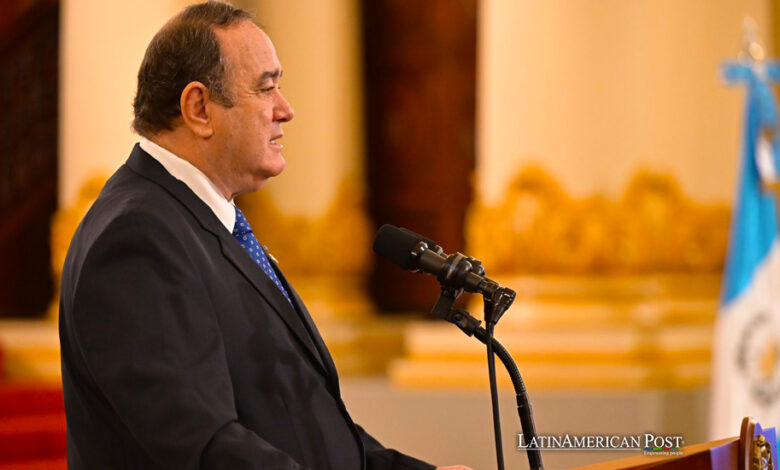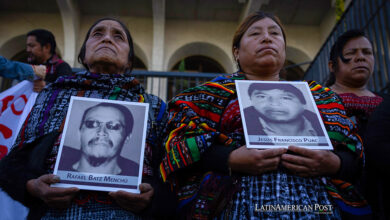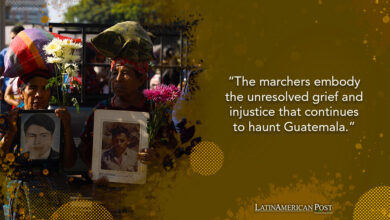Former Guatemalan President Faces U.S. Entry Ban Over Corruption Claims

The U.S. State Department has barred former Guatemalan President Alejandro Giammattei from entering the country amidst allegations of significant corruption, escalating tensions following a tumultuous presidential transition in Guatemala.
Controversy Surrounds Former Guatemalan President Alejandro Giammattei
Former Guatemalan President Alejandro Giammattei has been embroiled in controversy as the U.S. State Department imposed a ban on his entry into the United States over allegations of corrupt practices during his presidential tenure. The State Department spokesperson Matthew Miller highlighted credible information indicating that Giammattei had allegedly accepted bribes in exchange for public functions, thereby undermining government transparency and the rule of law.
During his presidency, Giammattei faced severe criticism for failing to revive a U.N.-backed anti-corruption watchdog, which his predecessor abruptly terminated. Additionally, he repeatedly clashed with the U.S. government over efforts to combat graft.
The emergence of a new anti-corruption advocate, Bernardo Arevalo, who replaced Giammattei as the president of Guatemala, marked a crucial turning point. Arevalo’s ascent to power was mired by allegations of an attempted coup by prosecutors to invalidate his candidacy, culminating in a chaotic inauguration that was delayed by efforts in Congress to undermine his authority. Amidst this tumult, Giammattei publicly pledged to ensure an orderly transition but notably absented himself from the swearing-in ceremony.
Respectful Response to the U.S. Government’s Decision
In response to the U.S. government’s decision, a government spokesperson representing President Arevalo’s administration conveyed their respect for the U.S. government’s criteria for rendering Guatemalan citizens ineligible for entry. Arevalo himself was sworn in as the new president of Guatemala in the wake of the chaotic inauguration, thereby commencing a new chapter in the nation’s political landscape.
The events unfolding in Guatemala underscore the deep-seated tensions and the far-reaching impact of corruption allegations on the highest echelons of political power. The transitional period bears the indelible mark of uncertainty and upheaval, signaling a pivotal moment in Guatemala’s trajectory under the leadership of President Arevalo and the shadow cast by the specter of corruption allegations against his predecessor.
The Unfolding Political Landscape and Challenges Ahead
The implications of the U.S. entry ban on Giammattei are palpable, reflecting the turbulence and the deepening rift in U.S.-Guatemala relations. The U.S. government’s stance magnifies the gravity of the corruption allegations and their resonance on the global stage, particularly regarding diplomatic engagements and cross-border relations with key political figures. The ban serves as a stark indication of the repercussions of corruption on international diplomatic exchanges and the ramifications faced by individuals singled out for alleged misconduct.
As the spotlight remains fixated on the aftermath of the U.S. entry ban and the transition of power in Guatemala, the echoes of a fractious political landscape reverberate through the corridors of both nations. The endurance of Guatemala’s commitment to combat corruption and foster transparency in governance is beset by the tribulations of the recent past and the arduous task of navigating the uncharted waters of political renewal in the wake of profound upheaval.
Also read: The ILO Predicts that the Unemployment Rate in Latin America will Drop by One Tenth in 2024, to 6.1%
The ban imposed by the U.S. State Department on Giammattei signifies a watershed moment in the saga of corruption allegations and their implications for global relations, underscoring the unyielding imperative of upholding integrity and accountability in the corridors of power. The political saga unfolding in Guatemala speaks to the enduring struggle for democratic principles and the resilience necessary to steer the nation through the tumultuous crosscurrents of political transition and diplomatic entanglements.




